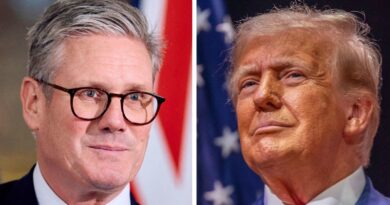After Israel-Hezbollah escalation, what next for Gaza cease-fire and Iran conflict?
Israel Defense Forces spokesman Nadav Shoshani said Hezbollah’s attack might have appeared more subdued due to what Israel has described as its pre-emptive strike carried out by dozens of fighter jets.
“That’s part of why their attack seemed smaller than what it was and our readiness in our aerial defense systems,” Shoshani told NBC News.
Hezbollah said it ultimately fired around 320 Katyusha rockets toward 11 Israeli bases and military sites.
Israeli Prime Minister Benjamin Netanyahu warned at the beginning of a cabinet meeting in Tel Aviv that Sunday’s hostilities were “not the end,” however,
Iran, which has vowed its own retaliation against Israel for the assassinations of Shukr and Hamas political leader Ismail Haniyeh, has yet to act.
Israel, which typically remains silent on targeted assassinations, has not publicly claimed responsibility for the killings, but is widely believed to have carried them out.
The country’s new foreign minister, Abbas Aragchi, said late Sunday that Iran’s response “is definitive and will be measured and calculated.” And early Monday his spokesman praised the Hezbollah attack as highlighting that Israel has lost its “deterrence power.”
“Despite the comprehensive support of states like the United States, Israel could not predict the time and place of a limited and managed response by the resistance,” foreign ministry spokesman Nasser Kanaani wrote on X.






